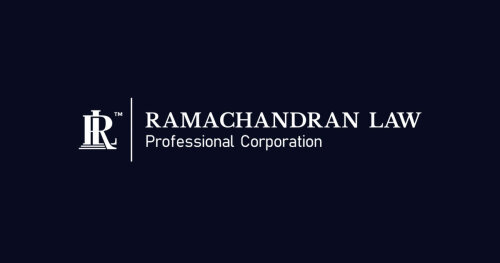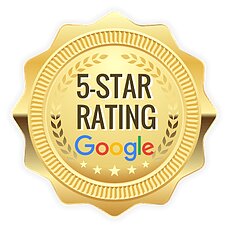Best Lawyers in Canada
Share your needs with us, get contacted by law firms.
Free. Takes 2 min.
Or refine your search by selecting a city:
List of the best lawyers in Canada
Canada Legal Questions answered by Lawyers
Browse our 2 legal questions in Canada and read the lawyer answers, or ask your own questions for free.
- compensation for injury sustained at resort in Mexico
- On December 6 2025 my wife sustained a serious injury at an all inclusive resort in Mexico. Dislocated ankle and 2 broken bones above the ankle. Shortly after arriving at the resort my wife slipped and fell on a very slippery area rug beside the bed. She was an in-patient... Read more →
-
Lawyer answer by Ascendance International Consulting (A-I-C)
You have a strong claim under Mexican civil‑responsibility law (the Ley de Responsabilidad Civil del Estado y de los particulares) because the resort’s premises were unsafe—an unsecured rug that caused a slip‑and‑fall resulting in a dislocated ankle and two fractures—and...
Read full answer - Hi there,I've been separated for 20yrs,would like to get divorced,
- What's the procedure, or legalities I'm facing, an how can you help?
-
Lawyer answer by mohammad mehdi ghanbari
Hello, Thank you for reaching out. I understand that navigating a divorce after a long period of separation can be a challenging and uncertain process, and I can offer some general guidance on the matter. General Divorce Procedure The first...
Read full answer
Canada Legal Articles
Browse our 15 legal articles in Canada written by expert lawyers.
- Manage Probate and Estate Administration in Ontario, Canada
- Probate is a Formal Process: In Ontario, probate is legally known as applying for a "Certificate of Appointment of Estate Trustee," which confirms the authority of the person managing the estate. Estate Administration Tax (EAT): This tax is calculated based on the total value of the estate assets, with the... Read more →
- Anti-Dumping Duties in Canada: A Guide for Exporters
- Anti-dumping and countervailing duties are governed by the Special Import Measures Act (SIMA), which aims to protect Canadian manufacturers from unfair foreign pricing. Two distinct government bodies oversee these cases: the Canada Border Services Agency (CBSA) determines the existence of dumping, while the Canadian International Trade Tribunal (CITT) determines if... Read more →
- Canada Competition Act Updates: Risks for Foreign Investors
- Lower Intervention Thresholds: The Competition Bureau can now challenge mergers that significantly lessen competition even if they do not create a total monopoly. Global Revenue Penalties: Violations may result in administrative monetary penalties (AMPs) of up to 10% of a company's worldwide gross revenue or three times the benefit derived... Read more →
About Hiring a Lawyer in Canada
Hiring a lawyer in Canada involves a few steps aimed at ensuring you find the right legal expert for your needs. Begin by identifying your specific legal issue, as this will guide you in choosing a lawyer specializing in that area of law. Use resources like the Law Society's directory or online legal services in your province to find a list of qualified lawyers. Set up consultations to discuss your case, review their expertise, ask about their experience with similar cases, and understand their fee structure. It's crucial to feel comfortable with the lawyer you choose, as a good working relationship is fundamental to navigating legal challenges successfully.
Why You May Need a Lawyer
There are various situations where you might require the assistance of a lawyer in Canada. Common scenarios include:
- Personal injury claims due to accidents.
- Family law issues such as divorce or custody disputes.
- Immigration and residency applications or appeals.
- Real estate transactions, agreements, or disputes.
- Criminal charges or indictments.
- Business-related legal matters, including contracts, formations, or disputes.
- Estate planning and wills advice or drafting.
These are just a handful of examples where professional legal guidance can safeguard your rights and interests.
Local Laws Overview
Canada's legal system is primarily based on British Common Law, except for the province of Quebec, which follows a civil law system for private matters. Key aspects of Canadian law include:
- Constitutional Law: Defines the structure of the Canadian government and the rights of Canadian citizens.
- Criminal Law: Governed by the Criminal Code, detailing offenses and punishments.
- Employment Law: Outlines the rights and duties of employers and employees.
- Family Law: Addresses issues around marriage, divorce, and child custody.\
- Real Estate Law: Covers property transactions and land ownership rights.
Each province and territory can have its own laws and regulations, often influencing areas like education, health care, and transportation.
Frequently Asked Questions
What qualifications do lawyers in Canada possess?
Lawyers must complete an undergraduate degree, followed by a law degree (Juris Doctor or Bachelor of Laws), and pass the bar admission course and exams in the province where they intend to practice.
How are lawyer fees structured in Canada?
Fees can be hourly, flat rate, retainer-based, or contingency in nature. It's essential to discuss and agree on the fee structure during the initial consultation to prevent unexpected costs.
Can I represent myself in court?
While you can represent yourself, having a lawyer usually provides better outcomes, especially in complex cases involving technical legal details.
What if I can't afford a lawyer?
Legal Aid may be available if you meet specific financial criteria. It's advisable to contact your local Legal Aid office for more information.
How can I verify a lawyer's credentials?
Law Societies in each Canadian province and territory regulate lawyers. You can verify credentials through the society's public directories.
What should I take to my first lawyer meeting?
Bring all relevant documents pertinent to your situation, including identification, contracts, correspondence, and any court documents.
What is solicitor-client privilege?
This privilege ensures that all communication between you and your lawyer remains confidential, promoting full and frank discussions.
How long will my legal case take?
The duration depends on the complexity of your case, the courts' schedule, and the parties involved. Your lawyer can provide a more tailored estimate.
What should I do if I'm not satisfied with my lawyer's services?
Discuss your concerns directly with the lawyer. If unresolved, contact the Law Society in your area for guidance on lodging a complaint.
Can lawyers practice across Canada?
Lawyers are typically licensed by individual provinces and territories. Some may practice in multiple jurisdictions if they meet the respective regulatory requirements.
Additional Resources
When seeking legal advice in Canada, consider the following resources:
- Provincial and Territorial Law Societies: Provide resources for finding and hiring lawyers.
- Legal Aid Agencies: Offer services to those who meet particular financial criteria.
- Community Legal Clinics: Provide advice and representation in various areas of law.
- Federal and Provincial Courts: Websites provide information about court processes and forms.
Next Steps
If you need legal assistance, start by assessing your legal issue and then conduct thorough research on potential lawyers fitting your criteria. Use available resources, engage in initial consultations, and discuss service terms. Don't hesitate to contact law societies or legal aid if you require guidance or financial assistance. Taking these proactive steps will put you on the right path toward resolving your legal matters in Canada effectively.
Lawzana helps you find the best lawyers and law firms in Canada through a curated and pre-screened list of qualified legal professionals. Our platform offers rankings and detailed profiles of attorneys and law firms, allowing you to compare based on practice areas, experience, and client feedback.
Each profile includes a description of the firm's areas of practice, client reviews, team members and partners, year of establishment, spoken languages, office locations, contact information, social media presence, and any published articles or resources. Most firms on our platform speak English and are experienced in both local and international legal matters.
Get a quote from top-rated law firms in Canada — quickly, securely, and without unnecessary hassle.
Disclaimer:
The information provided on this page is for general informational purposes only and does not constitute legal advice. While we strive to ensure the accuracy and relevance of the content, legal information may change over time, and interpretations of the law can vary. You should always consult with a qualified legal professional for advice specific to your situation.
We disclaim all liability for actions taken or not taken based on the content of this page. If you believe any information is incorrect or outdated, please contact us, and we will review and update it where appropriate.
Refine your search by selecting a practice area.
Accidents & Injuries
Banking & Finance
Bankruptcy & Debt
Business
Civil & Human Rights
Consumer Rights
Corporate & Commercial
Criminal Defense
Employment & Labor
Energy, Environment & ESG
Family
Immigration
Insurance
Intellectual Property
Lawsuits & Disputes
Media, Technology and Telecoms
Notary Services
Private Client
Real Estate
Browse law firms by city in Canada
Refine your search by selecting a city.


































